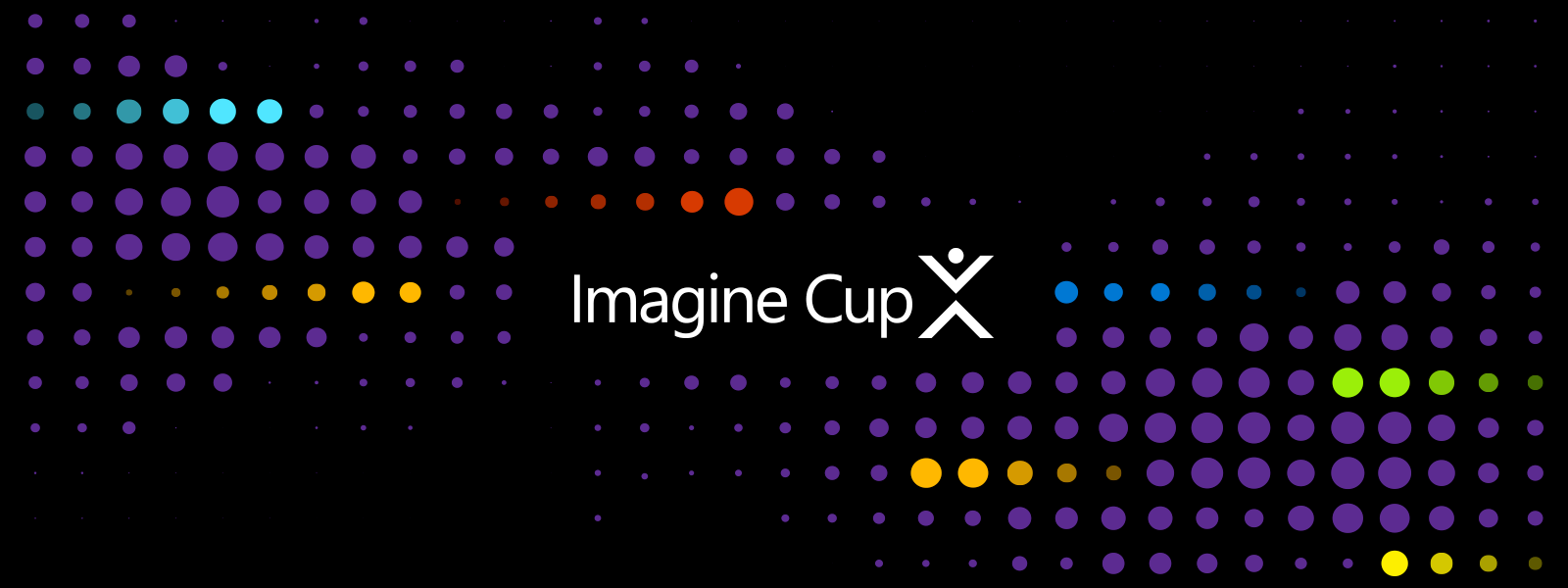
For most, it would be a dream to get a chance to win USD100,000 and be mentored by Microsoft CEO Satya Nadella, but for a select group of students from the Americas, that dream could soon become reality.
For the first time in nearly two decades, the 2020 Microsoft Imagine Cup Americas Regional Finals will be held virtually via Microsoft Teams on March 30. The ten teams – from Brazil, Canada, Mexico and the United States – will participate in the competition and fight for their place in the world final later this year. The top two teams will receive USD8,000, a chance to compete in the Imagine Cup World Championship during Microsoft Build 2020, and a mentorship session with Satya Nadella, Microsoft CEO.
Initiatives like Microsoft Imagine Cup help encourage the brightest and best students to develop world-changing technology projects by unlocking their creativity with guidance, knowledge, and resources. Founded in 2003, it’s the world’s largest student technology competition, with thousands of students participating from around the world each year. This year’s competition brings together projects that tackle some of the world’s biggest challenges such as environmental sustainability, healthcare and accessibility.
Let’s meet the ten innovative teams participating in this year’s Microsoft Imagine Cup Americas Regional Finals.
Team Intivity (Brazil)

“LikeBee is here to help everyone do their part in diminishing the wrong waste disposal. But more than that, we aim to be a token to remember every citizen that even the simplest every-day actions may have collective implications. We aim to make it clear that everyone counts in the pursuit of a better future. Much more than a social startup, a whole community. This is LikeBee: Caring Together.”
LikeBee is a community-based project using AI and IoT technologies and partners with sponsoring stores. Customers earn points which may be exchanged for discounts with partner companies by recycling in HiveBins (intelligent trash bins) installed on the street or in private spaces. Sponsoring partners are featured on an app creating a marketplace for people with shared concerns.
Team Intivity’s goal is to build a massive community and they are intentionally incorporating willing participants for market research and trials from a diverse group. This diverse group is intended to include multiple perspectives to align the project to the real world.
Team Synbiolic (Canada)
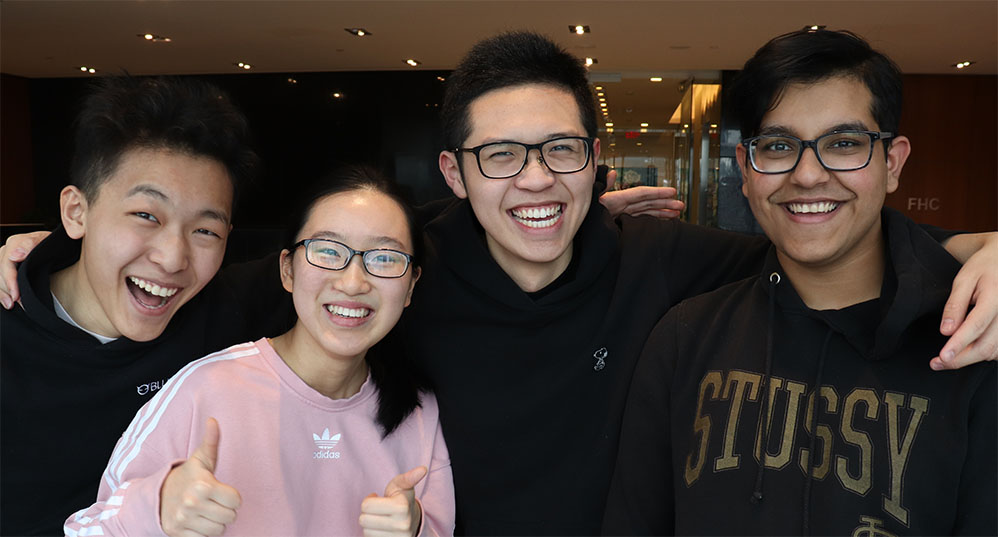
“By using AI to speed up the process of drug discovery, we could potentially save years in the process of taking a drug to market, making medication cheaper and more accessible to people in need around the world.”
Synbiolic is an AI-powered end-to-end rational drug design platform with a mission of making medicine more accessible, worldwide. Researchers are able to choose their targets, the small molecule’s property they wish to optimize and get a tailored list of molecules that could work as a drug, as well as instructions on how to synthesize that molecule.
Team Synbiolic felt that healthcare is a basic right and were shocked with the disparity. They created Synbiolic and plan to use AI to create a unique approach to drug discovery. The team made sure their project was easy to use and tailored towards the needs of researchers. It also lowers the barrier for access to medication all over the world.
Team SmartDoor (Canada)
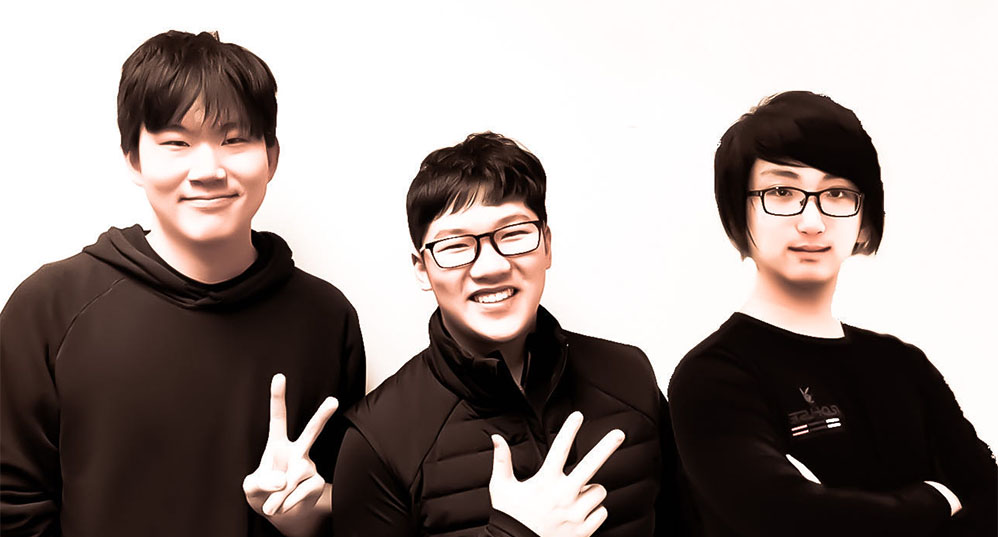
“Leveraging on Microsoft Azure Cloud and voiceprint recognition technology, we envision that contactless voice-controlled doors will become industry standard in the digital age. We trust that with greater refinement, SmartDoor may make a lasting legacy in the current era of technological innovation.”
SmartDoor is a text-dependent voiceprint recognition device that allows people with disabilities to comfortably open and close doors. By connecting a control system to any automatic door, SmartDoor recognizes a specific passphrase and voice allowing only authorized personnel to enter. The ultimate goal is to make the world more accessible and more secure to people with physical disabilities.
A stroke impacted the health and mobility of the grandfather of one of the members of team SmartDoor. So, for them it is clear that daily life in a wheelchair is difficult particularly when two hands and body strength are needed to open password protected doors. With billions of people with disabilities and mobility issues, the benefits of voiceprint recognition technology make sense worldwide. Eventually, SmartDoor could expand to help other temporarily impaired groups such as new mothers or people with groceries, and in other places such as offices, hospitals, warehouses, and hotels.
Team Aztec (Mexico)
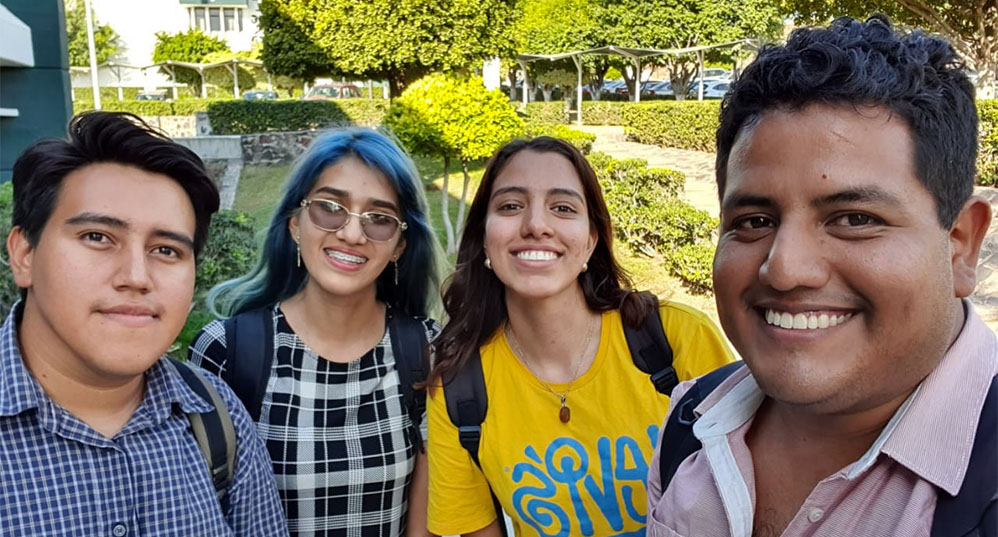
“We’re building bridges between hearing-impaired people and hearing people to reduce the gap in our society by using an everyday gadget like your smartphone or computer.”
W.A.O. is a multiplatform app that translates (in real time) sign language into written language through a phone or computer camera. It quickly and simply translates into text what a hearing-impaired person wants to say.
Team Aztech wanted to help those without a voice. And they believe W.A.O. can be the voice which creates inclusion to build a better culture and a broader kaleidoscope of communication. One of its team members is an interpreter for hearing-impaired people, hence became aware of their need to communicate properly with people who don’t know sign language.
Team Deeptector (United States)
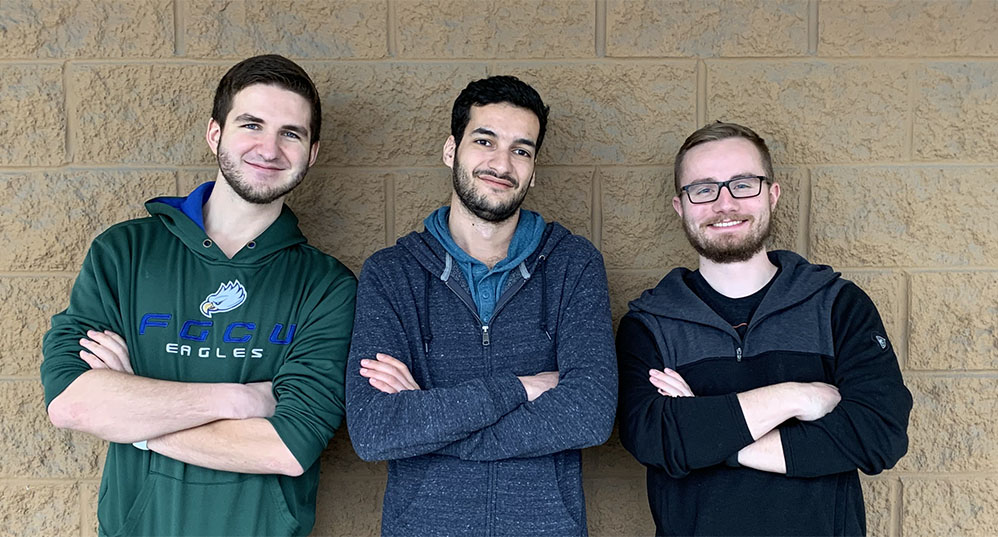
“As with any revolutionary technology, and as the benefits of Artificial Intelligence grow, so does the potential for harm. Our goal for Deeptector is to use AI to help protect the world from the harmful effects of AI.”
Deeptector.io is a web app that detects DeepFakes using the same Artificial Intelligence methods that generate state-of-the-art DeepFake. These algorithms are commonly known as deep neural networks and they train themselves to differentiate between real videos and fake ones by looking at thousands of examples of each. DeepFakes are an emerging method for spreading misinformation in the media, and Deeptector aims to protect journalists and the public from the damage that DeepFakes can cause.
Deeptector’s project was inspired by the ramifications of misinformation. The team believes that easy to use and readily available software to detect DeepFakes is critical for journalists and media consumers to verify the authenticity of videos and images.
Team Pink AI (United States)
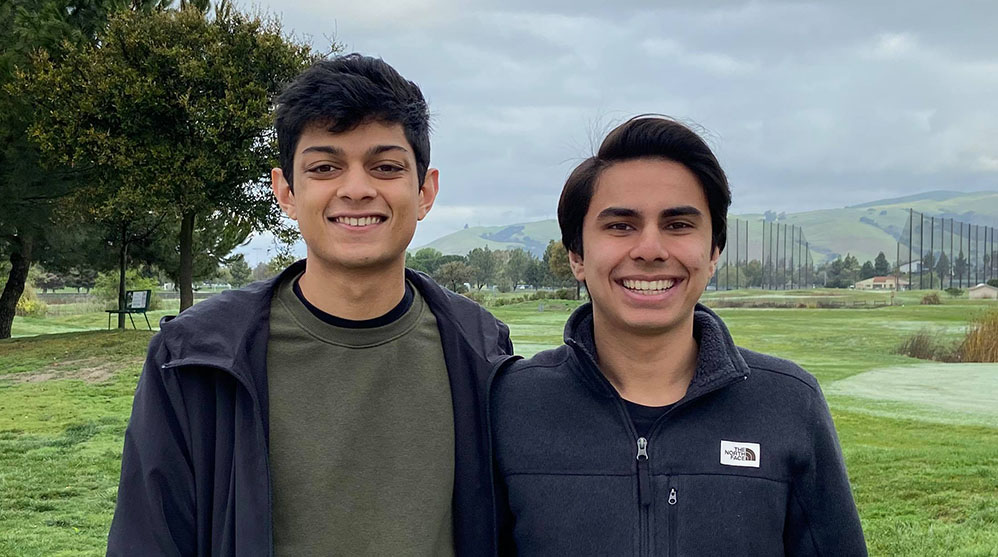
“Pink AI aims to revolutionize histopathology and its role in healthcare by providing an AI powered web platform that detects four different types of breast cancer with a state-of-the-art accuracy of 99%.”
Pink AI (pinkai.tech) is a novel AI powered web platform that predicts if a given microscope biopsy image of breast tissue is cancerous with a groundbreaking accuracy of 99% on four different types of breast cancer. Pink AI aims to revolutionize histopathology and healthcare as a whole by replacing a process that is traditionally very laborious, expensive, and time consuming with a simple, easy-to-use tool designed to run on any internet connected device.
With the platform, the team looks to help with accuracy at finding breast cancer on a single biopsy image than even the most skilled pathologists who have an accuracy of around 85%. The implementation of Pink AI in histopathology would reduce the cost of analyzing breast biopsy images by up to 80%, and potentially save hundreds of thousands of lives worldwide through earlier breast cancer detection.
Team Smart Wheelchair (United States)

“We aim at bringing back lives to physically disabled people at an effective and affordable cost.”
Smart Wheelchair caters to physically disabled people by trying to make an ADA (Americans with Disabilities Act) compliant smart electric wheelchair. It would be available to people from all backgrounds, genders and economic status at an affordable cost with less maintenance cost.
For team Smart Wheelchair, rapidly building customer requirements into protypes, understanding customer needs, and incorporating feedback for the next version was challenging. Smart Wheelchair learned that physically disabled people need innovation to solve their wheelchair problems and that focusing on the customer and collaboration with a diverse team and cross functions is important.
Team SnapSort! (United States)
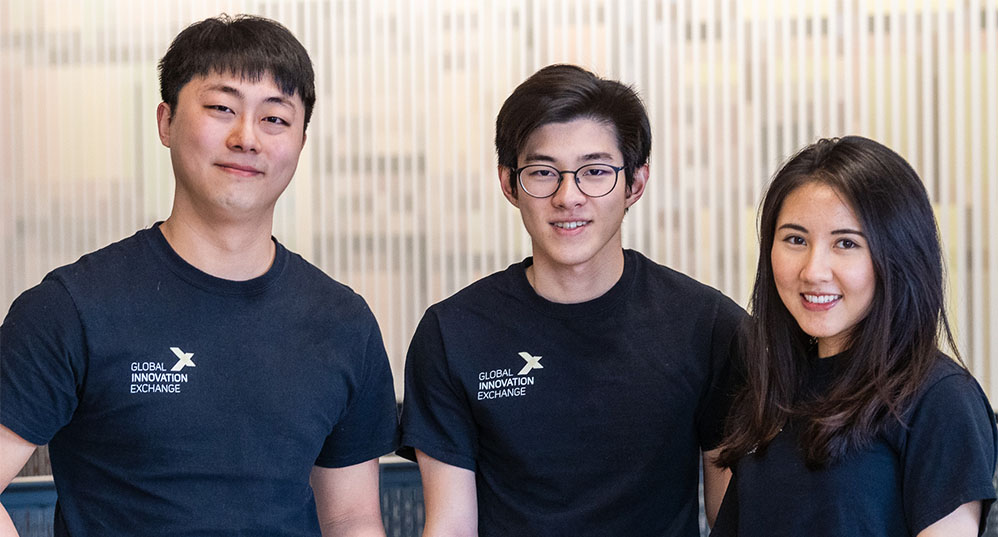
“Our goal is to empower everyone to sort properly, and encourage sustainable behavioral changes. Starting with proper sorting to reduce landfills, we want to use technology to promote a more sustainable lifestyle.”
SnapSort! is an intelligent waste sorting assistant that helps people sort properly. Leveraging the power of computer vision and machine learning technologies, SnapSort! provides intuitive real-time multi-object sorting instructions that allow users to toss his/her waste into the right bin effortlessly.
The team felt that computers and the recent developments in deep learning and real-time detection technologies could help solve the problem. SnapSort! is accessible to everyone in inclusive and accessible public spaces regardless of gender and ethnicity. Furthermore, since the real-time detection feature doesn’t require holding and scanning the trash in a specific location it is also accessible for people with disabilities.
Team Tremor Vision (United States)
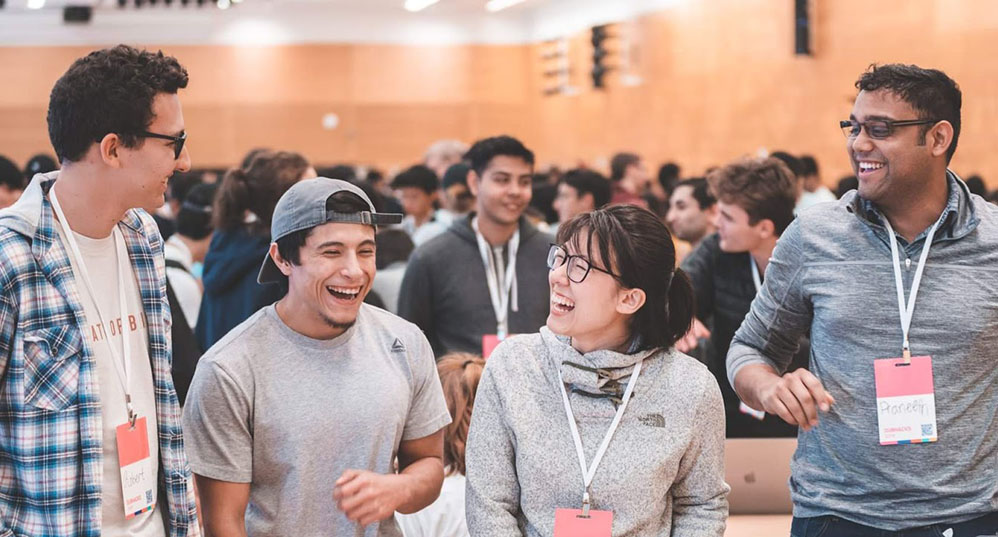
“I grew up in a rural, low-income household in Eastern Washington, where I lived with my disabled brother. A major challenge we faced as a family, was driving over 150 miles to get my brother to his regular doctor’s appointments, oftentimes in terrible weather conditions. With the help of telehealth platforms (like Tremor Vision) we could eliminate the need for patients to travel vast distances for routine clinic visits and increase access to quality healthcare.”
Tremor Vision is a web-based tool that enables physicians to detect early onset Parkinson’s and quantitatively track patient progress throughout a prescribed treatment plan. By simply using a touchscreen device connected to the internet, the user sends clinical results to the physicians. The platform empowers patients to save time and money required by routine clinical visits and increases physician’s reach in screening for early signs of Parkinson’s.
Tremor Vision has created a lightweight and intuitive web application. The load-times should be quick and work on all the major browsers. This allows people with limited access to powerful technology to use the application effectively.
Team TuringCerts (United States)
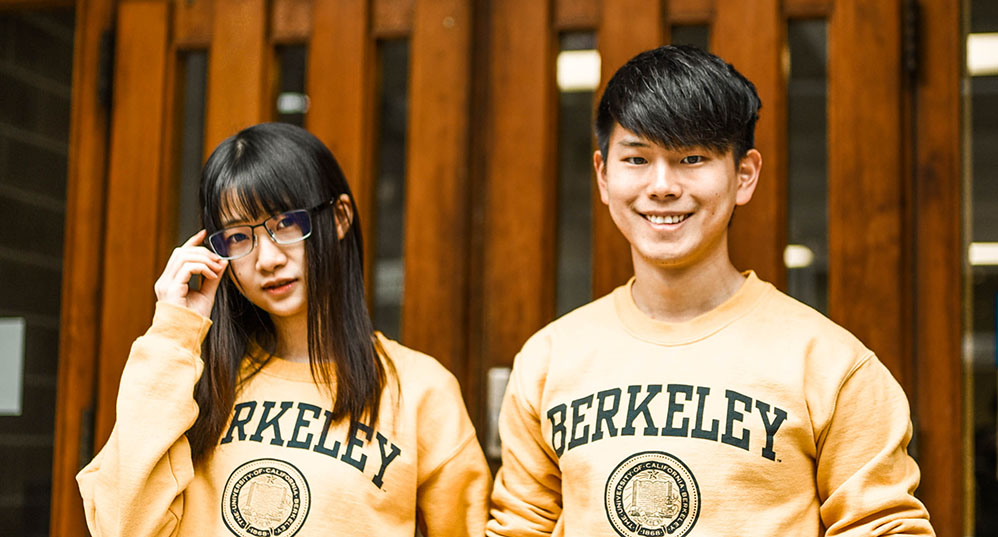
“We are digitalizing everything for the next generation of Smart Citizens. And we decided to start with the students.”
TuringCerts helps students get all their credentials verified with one-click. TuringCerts redefines traditional educational certificates and enables unified and sustainable records tracking for the educational industry with W3C DID, the decentralized identity. It ensures full data ownership for users and promises a rigorous GDPR privacy policy to uphold the highest trust of the source as well as the dignity of authorized certificates.
When one team member was applying for graduate schools in the US, it took several weeks to send transcripts, graduation diploma, certificates, and a variety of documents. The verification fee and post-office fee creates an unnecessary time and financial burden for millions of international students every year. As a result, this team decided to solve this troublesome problem for future student generations.
